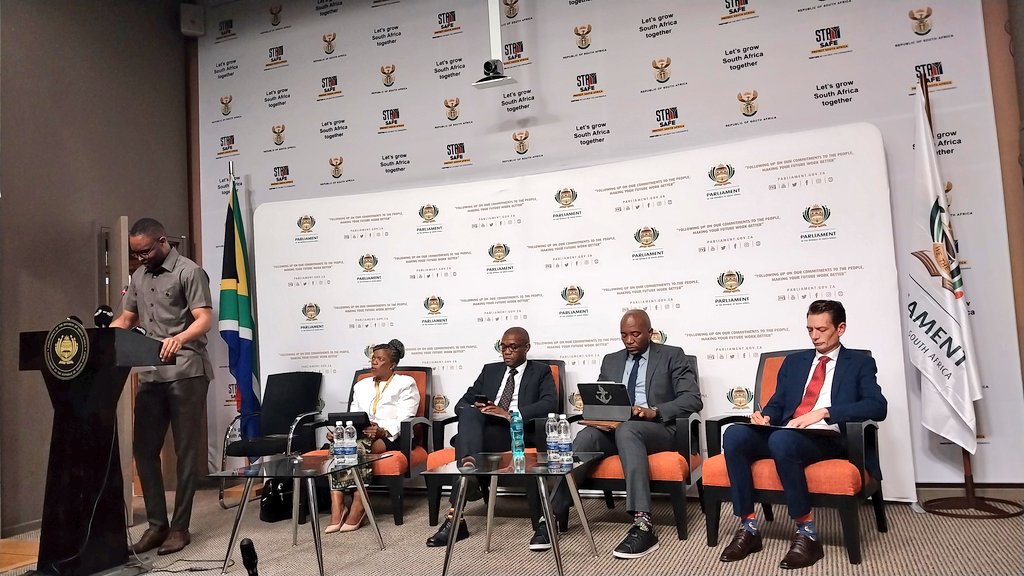By Simon Nare
The parliamentary committee from the financial cluster has painted a gloomy picture of the country’s fiscus, saying it is in a poor state following years of acquiring loans and money being wasted or stolen.
The committee, comprising four chairpersons from the cluster, warned that tough decisions would have to be made if the country was going to turn the tide.
Many institutions were either broken or dysfunctional, while others were unable to do their work efficiently due to a lack of resources.
The chairpersons from different political parties in the Government of National Unity were briefing the media on Monday in their first meeting. Parliament has launched a cluster programme, which involves a set of committees briefing the media every week to improve transparency and engage reporters on their parliamentary work.
The chairpersons were the Standing Committee on Public Accounts’ Songezo Zibi, the Standing Committee on Appropriations’ Mmusi Maimane, Standing Committee on Finance’s Mkhacani Maswanganyi, and the Standing Committee on the Auditor-General’s Wouter Wessels.
Zibi said change was possible if the money was spent wisely and South Africans got value for their money. This is what the committee would hold executive accountable over.
He said that unlike in the past where the government would have to wait for the Auditor-General report about wasteful expenditure from the previous year, going forward the committee would insist on regular reports about work being done.
“There is going to be at least one face to face engagement (with institutions)… two oversight visits and people coming to make presentations in Parliament, so that we do not wait for audit outcomes a year later before we do something.
“We need to work together with the executive, that is the ministers and accountable officials and the boards, to make sure we drive towards the same outcome,” said Zibi.
He added that the government needed to think deeply and seriously about the health of state-owned companies.
One example was municipalities owing Eskom billions of rands and that they could not afford to pay.
He said by March next year the debt would be R98 billion, and by March 2026 it would be R125 billion if it continued to rise at the current rate.
It was imperative to restore these municipalities and other SOEs back to healthy situations, and this was going to take some tough decisions.
“It’s time to be frank with everyone. We are seeing now 10 to 15 years of bad decisions. The country is, I don’t want to say bankrupt, but it is in a bad financial situation. The choice we have to make is whether we continue to borrow more for the future into a system that wastes or steals money.
“There is a lot of cross debt owing within the system because these institutions are broken. They have been mismanaged and continue to be mismanaged. South Africa pays R1.3 billion per day servicing debt. That’s how much we have to pay. It’s money that was borrowed, wasted or stolen,” said Zibi.
Maimane said more direct interventions were required by the government to grow the economy and create jobs.
“It’s crucial to note fellow South Africans that for every R1 that is appropriated, 22 cents is spent on debt, 38 cents is spent on cost of employees and more than anything, when you include and aggregate social grants or grants of some sort, it is a picture you want to see when you are trying to allocate resources for the purpose of growth,” said Maimane.
The committees are instrumental in safeguarding public resources and promoting fiscal responsibility.
INSIDE POLITICS

